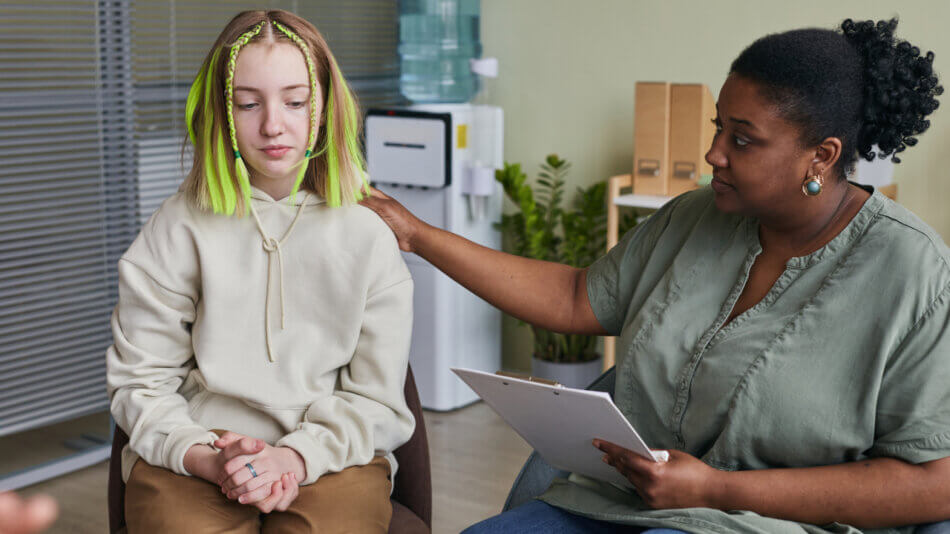Just like our bodies need care and attention, so do our minds. When facing mental health challenges, therapy can be a game-changer. It offers tools and strategies to help us cope, ultimately improving our overall well-being.
In this guide, we’ll explore different types of therapy, including outpatient and residential treatments. We’ll also chat about how these therapies can benefit anyone struggling with mental health issues.
Understanding Therapy
Therapy is a wonderful treatment designed to relieve mental health symptoms and boost emotional and psychological well-being. It’s like having a heart-to-heart conversation with a trained therapist who helps you understand and manage your thoughts, feelings, and behaviors.
There are various types of therapy, each catering to different needs and preferences. Let’s jump into some of the most common ones.
Types of Therapy
Outpatient Therapy for Mental Health
Outpatient therapy is a flexible option that lets you receive care while keeping up with your daily life. It usually involves regular in person sessions with a therapist or therapists through a treatment center dedicated to making a difference such as Centered Health’s Los Angeles Outpatient Center and The Meadowglade Outpatient Center.
Outpatient therapy is great for those with mild to moderate mental health conditions. Here are some benefits:
- Flexibility: You can schedule sessions around your daily activities, work and relationships.
- Accessibility: It’s easier to find outpatient therapy services in your local area.
- Community: Attending a therapy program through an outpatient center cultivates a sense of community with those around you also suffering from similar emotions.
Residential Treatment for Mental Health
Residential treatment, also known as inpatient treatment, means living at a treatment facility for the timeline of your program. This type of therapy is more intensive and structured, offering 24/7 support from mental health professionals.
Residential treatment is often recommended for individuals with severe mental health conditions or those who haven’t found success with outpatient therapy. This includes adults as well as adolescents. Some benefits include:
- Intensive Care: Continuous support and supervision.
- Structured Environment: A stable and controlled setting, free from external stressors.
- Comprehensive Treatment: Access to a wide range of therapies and activities designed to promote healing.
Residential treatment is essential for teens when they are struggling with their mental health diagnosis. Our team at Beachside Teen Treatment Center and Hillcrest Adolescent Treatment Center supports teens and their families daily with tools and resources to get back on track with their mental wellbeing.
Benefits of Therapy for Mental Health
Therapy can provide numerous benefits for individuals struggling with mental health issues. Here are some key advantages:
Improved Coping Skills
Therapy equips you with practical tools and strategies to manage your symptoms and life’s challenges. These skills can lead to better emotional regulation and resilience.
Enhanced Self-Understanding
Through therapy, you gain insights into your thoughts, feelings, and behaviors. This self-awareness can be empowering and pave the way for positive change.
Better Relationships
Therapy can help you improve your communication skills and develop healthier relationships. This can lead to more supportive and satisfying connections with others.
Reduced Symptoms
Many mental health conditions, such as depression and anxiety, can be effectively managed through therapy. With the right treatment, you can experience a significant reduction in symptoms.
How to Choose the Right Therapy
Selecting the right type of therapy depends on several factors, including your needs, preferences, and the severity of your condition. Here are some tips to help you make an informed decision:
Assess Your Needs
Consider the nature and severity of your mental health condition. If your symptoms are mild to moderate, outpatient therapy may be sufficient. However, if your condition is severe or hasn’t improved with outpatient care, residential treatment might be necessary.
Research Your Options
Look into different types of therapy and treatment facilities. Read reviews, ask for recommendations, and consult with mental health professionals to find the best fit for your needs.
Evaluate the Therapist’s Credentials
Ensure that the therapist you choose is licensed and experienced in treating your specific condition. Don’t hesitate to ask about their qualifications and approach to therapy.

Common Therapy Techniques
Therapists use various techniques to help individuals manage their mental health conditions. Some of the most common methods include:
Cognitive Behavioral Therapy (CBT)
CBT focuses on identifying and changing negative thought patterns and behaviors. It’s effective for treating conditions such as depression, anxiety, and PTSD.
Dialectical Behavior Therapy (DBT)
DBT, a form of CBT, emphasizes mindfulness, emotional regulation, and interpersonal effectiveness. It’s particularly helpful for individuals with borderline personality disorder and those struggling with intense emotions.
Group Therapy
Group therapy involves sessions with a therapist and a small group of individuals facing similar challenges. It provides a supportive environment where participants can share their experiences and learn from one another.
Healthy Lifestyle Choices
Incorporating healthy habits into your daily routine can have a positive impact on your mental health. Some suggestions include:
- Regular Exercise: Physical activity can boost your mood and reduce stress.
- Balanced Diet: Eating a nutritious diet can support brain health and overall well-being.
- Adequate Sleep: Prioritizing sleep can improve your emotional regulation and resilience.
Support Networks
Having a strong support system is crucial for managing mental health conditions. Surround yourself with friends, family, and peers who understand and support your journey.
When to Seek Help
It’s essential to seek help if you or someone you know is struggling with a mental health condition. Early intervention can lead to better outcomes and a quicker recovery. Some signs that it may be time to seek help include:
- Persistent Sadness or Anxiety: Feeling down or anxious for an extended period.
- Difficulty Functioning: Struggling to perform daily tasks or maintain relationships.
- Substance Abuse: Using drugs or alcohol to cope with emotions.
- Thoughts of Self-Harm or Suicide: Experiencing thoughts of harming oneself or ending one’s life.
If you or someone you know is in crisis, seek immediate help from a mental health professional or contact emergency services.
Choose Your Mental Wellbeing
Therapy plays a vital role in managing mental health conditions. Whether through outpatient therapy or residential treatment, the right approach can lead to significant improvements in well-being.
Remember, seeking help is a sign of strength, and taking the first step toward therapy can be a crucial part of your journey to recovery.
At Centered Health, we know how important making the right mental health care decision is and we are here to help you. Our team of experts is ready to support you on your mental health journey with care and skill.
Beachside Teen Treatment Center in Malibu, CA
Hillcrest Adolescent Treatment Center in Agoura Hills, CA










